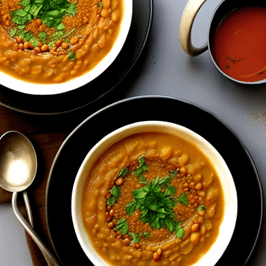Fasting is a tradition, used since ancient times as method of detoxifying the mind, body and spirit. Fasting, in the traditional sense, means going without food for a period of time, usually between 3 and 15 hours. This period of time allows your body to rest and detoxify itself.
Video Summary:
Health and Physical Benefits of Fasting:
This is currently one of the biggest trends in weight loss. However, to achieve weight loss with this method you have to utilize a schedule for abstaining from food that is often rigorous and requires a high amount of self-control.
Additionally, fasting is said to help control cancer by starving cancer cells for a period of time allows the chemotherapy to work in a more effective way to target and kill cancer cells.
Heart health can be improved as well with intentional eating. The American Heart Association positions,
“Intentional eating with mindful attention to the timing and frequency of eating occasions could lead to healthier lifestyle and CARDIO METABOLIC risk factor management.”
Research also points out that fasting assists with diabetes and may substitute for insulin. It has also proven lead to a longer life. Additionally, studies suggest that severely restricting food and water for 24 hour period of time for a few days a week can substantially decrease your risk of heart disease.
Mental Benefits of Fasting:
Physical health is not the only thing that can benefit greatly from fasting for periods of time. Mental health also improves with periods of fasting. Alzheimer’s disease, a progressive cognitive dysfunction and behavioral impairment, is just one of the diseases intermittent fasting assists with.
Cognitive functions have improved as well as memory in patients who participate in intermittent fasting rituals regularly.
Interestingly, the idea of going without food for a period of time, even though it seems difficult, improves mood, reduces depression and feelings of tension. Ironically, this may be, at least in some cases, because people are not always worrying about the next meal or snack.
Lastly, intermittent fasting is known to reduce cravings. This is, at least in part, due to the idea that food is a need not a want. When we focus on what our body absolutely needs, rather than what it wants, our focus shifts from the need to eat when bored, to the recognition of satiety.
 Spiritual Benefits of Fasting:
Spiritual Benefits of Fasting:
Many religious cultures also utilize this particular idea as a way to connect on a deeper level with their God. The idea is based on the notion that your spiritual needs outweigh your physical needs. Physical needs are ultimately put on the back burner when abstaining from food (or food and water) for a period of time. This allows allow the body to reconnect with its spirit or soul. It is also believed that when abstaining for a period of time, a greater level of devotion is achieved for the one who is able to do all things. This includes recognizing the need for food is secondary to a need for Him.
How to Fast:
Knowing the benefits of fasting doesn’t make it any easier to accomplish, unless you have an incredible amount of self-control. So, how do you make fasting work for you? Whether you are doing it as a way to regain your health, improve your memory or get closer to your God you will need to understand how to go about it.
One method is the 5:2 method.
5:2 Method:
This fasting method consists of eating normally every day and then dramatically cutting calories for two days a week. You can choose the days you fast and they do not have to be consecutive days or separate days. Its completely up to you.
This works better for many people because it allows them to eat regularly every day you are not “fasting.”
When training for a race or other strenuous activity, we recommended planning around the fast days.
16:8 Method
This method involves fasting every day for 14-16 hours and then eating 8-10 hours during the day. This allows you to fit in at least a few meals. This is one of the most popular fasting methods because it allows you to eat for a large amount of time. For instance, if you don’t eat after dinner and then skip breakfast the next morning, that period of time without eating could be considered your fast. Women do better with this method due to their hormones. You can drink zero calorie drinks all during this fast.
Warrior method and skipping meals are additional ways you can fast. It is really up to you how you choose to do it and how you feel your body functions best. Our suggestion is to try a number of methods until you discover one that works best for you.
There are a number of people who also suggest meditation in addition to fasting. This can significantly improve your sense of calm and allow what you are doing to seep deeper into your soul and improve your overall sense of well being.











